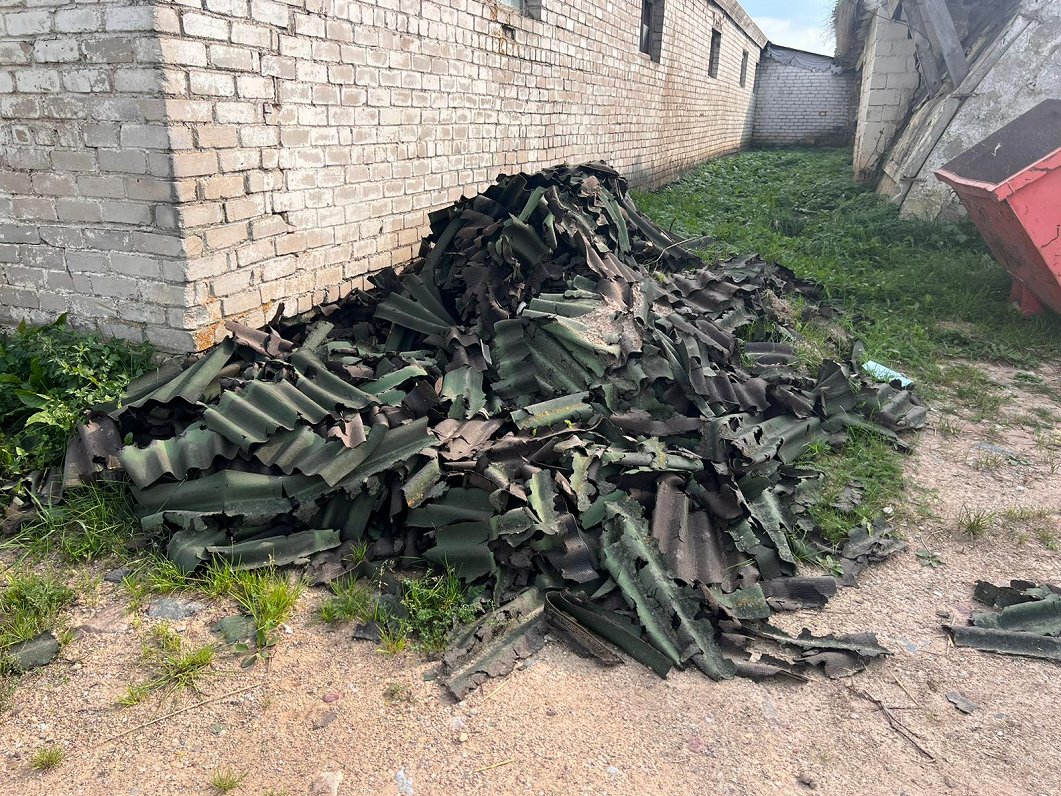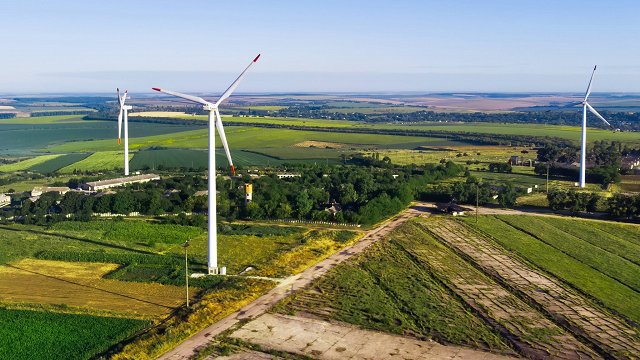Asbestos-containing building materials are still common in Latvia, but after their useful life, they are hazardous waste that harms the environment by polluting the air, soil, and groundwater.
"The amount of slate varies in different regions of Latvia. If we look at the Pierīga region, it is relatively low - up to 10,000 tonnes, but if we look at Rīga and further afield, the amount reaches 49,000-53,000 tonnes per region," said Atis Treijs, Director of the Waste Circulation Department of the State Environmental Service.
Asbestos is mainly found in the roofing of residential, commercial and industrial buildings and was often used as thermal insulation material in Soviet times. When getting rid of unwanted roofing, many people choose to shred it to fill potholes in roads.
"This is unacceptable. If the slate is in one piece on the roof or facade, the danger is much less than if the waste is broken or otherwise physically affected. Dust particles are released, which are the most dangerous," said Treijs.
Asbestos is carcinogenic. When particles get on the skin or are inhaled, allergies and life-threatening diseases can develop over time.
"Asbestos-related diseases do not occur immediately, but develop over a longer period of time, perhaps as long as 20 years after exposure to asbestos," said Treijs.
One option is to transfer the harmful material to managers, but then there are costs. On average, around €200 per tonne, which would be equivalent to 50 sheets of slate.
There are 32 traders in Latvia that collect asbestos waste. ZAAO Ltd is one of them.
"Customers are offered two options. We drive to the customer's address, then they pay by the cubic meter. The other option is to take the slates to the Circular Economy Center "Daibe". Here again, payment is by weight. In both cases it is important to pack correctly and not to crush or break it to prevent the fibers from spreading," said Mārtiņš Vīgants, Head of Customer Service at ZAAO.
The Ministry of Environmental Protection and Regional Development invites poor and low-income households to apply for the support program and to hand over asbestos-containing slates free of charge. The total amount of funding for the implementation of the support program is EUR 350,000. A maximum of 3 tonnes, or approximately 150 sheets of slate, can be handed over for disposal. The deadline for applying for the support is May 31.


























